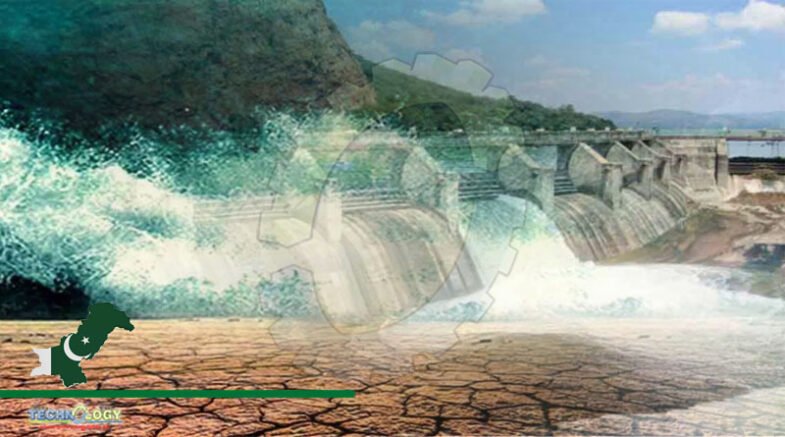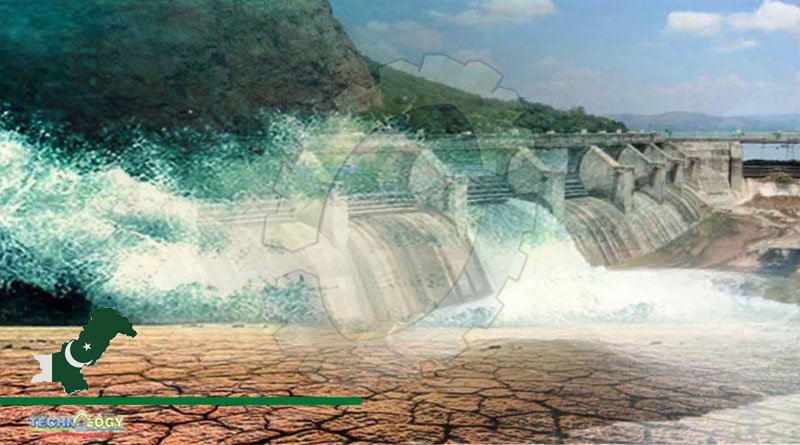Despite the mighty K2 and ferocious Indus river water resources in Pakistan are depleting fast. IMF has ranked Pakistan third among the countries facing severe water shortages in the world. Yet Pakistan’s policymakers refuse to acknowledge the scale of the challenge and remain ignorant of even small changes that could be made to to resolve the issue, an ex-World Bank Adviser argues.

Water is a critical component for the existence and sustainable development of a society and is a fundamental human right on this planet. It is vital for countries like Pakistan, where it is almost priceless for agriculture, which exploits about 96 percent of available freshwater, while other sectors use the 4 percent left over.
By virtue of its ever-increasing population growth, urbanization, and climate change, conflicts over water resources are expected to increase, with dire consequences for the food production system in the country.
Despite hosting the third pole (the Hindu Kush, Himalayas mountain range, and the Tibetan Plateau), Pakistan is still highly vulnerable to the impacts of water scarcity due to climate change. Planet Earth comprises 71 percent water and 29 percent land, but most of the water is not useable, so water scarcity has become a global problem.
Gulf countries, especially Saudi Arabia, have severe water scarcity problems and use desalination plants to get fresh water from seawater, which is an energy-intensive process. Pakistan has also recently established a desalination plant in Gwadar with the help of China.
Read More: Pakistan aiming to conserve water builds & upgrades water courses
The majority of Pakistan’s landmass, almost 80 percent, is classified as having a semi-arid to an arid climate. More than 30 million people lack clean drinking water access in Pakistan, and more than 50 million people do not have electricity.
Understanding the scale of Pakistan’s Water scarcity
Water scarcity occurs when water demand is greater than the available supply. IMF Ranked Pakistan third among countries, Intensified water scarcity leads to desertification that United Nations has recognized as a global challenge. UN Convention to Combat Desertification (UNCCD) is working globally to solve related desertification and land degradation issues.
Pakistan ranks as the world’s fourth highest water user per capita. The amount of water consumed per unit of Gross Domestic Product (GDP) is the highest globally, implying the water-intensive economy of Pakistan is at the top of the list.
International Monetary Fund (IMF) has ranked Pakistan third among the countries facing severe water shortages. The mighty Indus, the mighty K2, and the world’s renowned peaks comprising the third pole on earth may still not be able to save Pakistan from the devastation of desertification and water scarcity.
The irrigation system for the plains of Punjab was built during the British era. Edward Calvert and Sir Malcolm Darling, who surveyed Punjab’s irrigation system during the 1930s, stated that it is a fragile system dependent on hill forests. They mentioned in their report that “deserts will revisit in a century.”
Since hill forests are being destroyed and degraded, we see their words come true as deserts are revisiting. Thus, there is an urgent need for afforestation. Despite having more glaciers than anywhere else globally and the mighty Indus River, Pakistan faces acute water scarcity.
Stress is increasing on water resources, surface, and groundwater, and severe extreme conditions increasingly occur in different parts of the country. Flood irrigation- highly inefficient use of water- is being used to grow water-intensive crops.
Sugarcane and rice crops need to be restricted to some regions of the country which can sustain them. Argo-ecological zones (a division of land into a resource mapping unit based on areas topology, climate, etc.) of Punjab were developed by the team at Argo-climatology lab, University of Agriculture Faisalabad, and have been evaluated, endorsed, and published by Food and Agricultural Organization (FAO).
These zone-specific crop systems can help to boost sustainable production and provide opportunities to replace water-intensive crops, i.e., sugarcane and rice from non-core zones, with cotton, oil seed crops, vegetables, and high-value crops.
Pakistan’s Water Challenge: Obsolete infrastructure and lack of dams
Obsolete water infrastructure in Pakistan, lack of dams/ reservoirs, non-concrete canals having low water efficiency, and sediments filled reservoirs bring a potential threat to future water security. Furthermore, clean and drinking water reservoirs are polluted by poor agricultural practices of extensively used agrochemicals, humans, and industrial waste. Therefore IMF Ranked Pakistan third
Tackling water scarcity needs a proper understanding of the problem before it becomes impossible to solve and we reach a point of no return. Urgent investment is required in order to build infrastructure to store water from local lakes, village ponds, and rainwater harvesting.
About 70 percent of freshwater by rainfall is received during July to September, in the monsoon season, but due to lack of awareness and poor infrastructure, we turn this blessing into a curse by not conserving this precious natural resource.
Pakistan: Need to stop flood irrigation & control seepage from canals
The Kalabagh dam issue needs to be resolved also. Yes, IMF Ranked Pakistan due to environmentalists believe we need to restore natural pathways and shift to nuclear and other renewable energy sources. Still, we are not in that position and cannot deny the importance of water reservoirs and the blessings of natural slopes existing from K2 to Clifton, those slopes and the natural gravity flow are a huge blessing to this part of the world.
We can deal with the excessive seepage problems of canals instead of using concrete to seal them, which is very time-consuming and requires high capital; other alternatives are present, such as sealing polymer.
The application of sealing polymers can lower the seepage problem by up to 80 percent, require little to no time, and can be done on a meager budget all across the country. Ironically, some of our areas are waterlogged while we do not have water at the tail of watercourses.
Flood irrigation is an ancient and inefficient method of irrigation where more water is applied than the crop-water requirement, wasting much water that other farmers can use. Flood irrigation causes stress and wastage of precious nutrient resources; thus, crop yield remains below average than the rest of the world.
The government of Punjab is doing very active work to control the water scarcity problem, through the department of On-Farm Water Management (OFWM), by concreting the watercourses and by giving subsidies to farmers to install the High-Efficiency Irrigation Systems (HEIS) to solve the water scarcity issues in Punjab, through efficiency enhancement and mechanization.
The solution lies in educating farmers about the benefits of using HEIS like center pivot irrigation systems, drip irrigation systems, etc., and applying metering and taxes on water usage. Campaigns about water scarcity, its possible causes, and solutions need to be launched on an emergency basis.
On the industrial side, there is a need for strict implementation of laws. Treatment of sewage and industrial water is essential to the sustainable availability of freshwater. Metering, taxing, and efficient monitoring solves most of the water-related problems in industrial sectors.
Water scarcity is getting severe in large cities of Pakistan due to unplanned expansions of the cities. Groundwater that was available at double-digit meters has, over the years, fallen and now has to be dug in hundreds of meters below the surface across the country.
Large cities should be expanded according to their master plans rather than uncontrolled growth so that everyone can get an adequate quantity of freshwater. Cultural practices need to alter for better water usage as well. Possibilities to cope with water scarcity can be divided between demand management and supply enhancement.
Originally Published by Global Village Space
